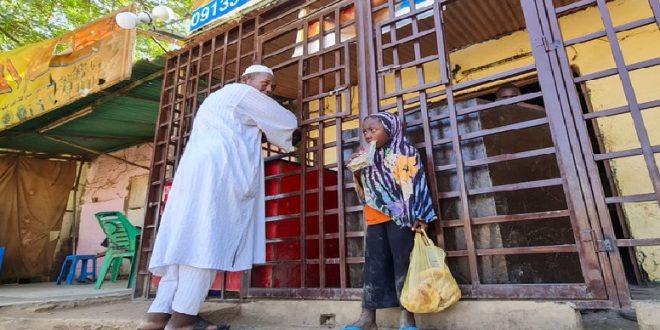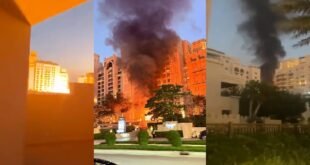24-05-2023
KHARTOUM: A week-long ceasefire period agreed by Sudan’s warring factions and designed to allow for the delivery of aid has begun after the army conducted heavy air strikes across the capital Khartoum against its paramilitary rivals.
 The ceasefire, which was agreed to on Saturday after five weeks of fierce battles between the army and the paramilitary Rapid Support Forces (RSF), was due to take effect at 9:45pm (19:45 GMT) on Monday.
The ceasefire, which was agreed to on Saturday after five weeks of fierce battles between the army and the paramilitary Rapid Support Forces (RSF), was due to take effect at 9:45pm (19:45 GMT) on Monday.
The ceasefire deal includes a monitoring mechanism involving the army and the RSF as well as representatives from Saudi Arabia and the United States, which brokered the agreement after talks in Jeddah.
Though fighting has continued through previous ceasefires, this is the first truce to be formally agreed following negotiations.
Sudan’s army conducted air attacks in the capital Khartoum, hours before the deal aimed at allowing the delivery of aid was due to take effect.
Residents reported air strikes in Khartoum, Omdurman and Khartoum North, the three cities that make up the greater capital, separated by the confluence of the Blue Nile and White Nile.
“The situation is horrible. The planes are bombing us on every side and from the strength of the vibration of the house doors, we feel like we’ll die today,” Salma Abdallah, a resident of the Al-Riyadh neighborhood in Khartoum, told Reuters.
 Witnesses said the army also carried out air attacks into the evening on Sunday, targeting vehicles from mobile units of the Rapid Support Forces (RSF), the paramilitary group that the army is fighting. RSF vehicles have been operating across residential areas in the capital.
Witnesses said the army also carried out air attacks into the evening on Sunday, targeting vehicles from mobile units of the Rapid Support Forces (RSF), the paramilitary group that the army is fighting. RSF vehicles have been operating across residential areas in the capital.
Hiba Morgan, reporting from Omdurman, said “both sides are trying to gain as much ground as they can before the ceasefire takes effect, because once it does there should be no heavy artillery being fired and no air strikes.”
Morgan added that while for the first time “both sides signed a document agreeing to the ceasefire”, residents worried the agreement would not hold.
“When they see no fighter jets flying overhead, that’s when they’ll believe this ceasefire is actually taking effect,” she said.
The deal has raised hopes of a pause in fighting that erupted on April 15 and has driven nearly 1.1 million people from their homes, including more than 250,000 who have fled into neighboring countries. (Int’l Monitoring Desk)
 Pressmediaofindia
Pressmediaofindia




